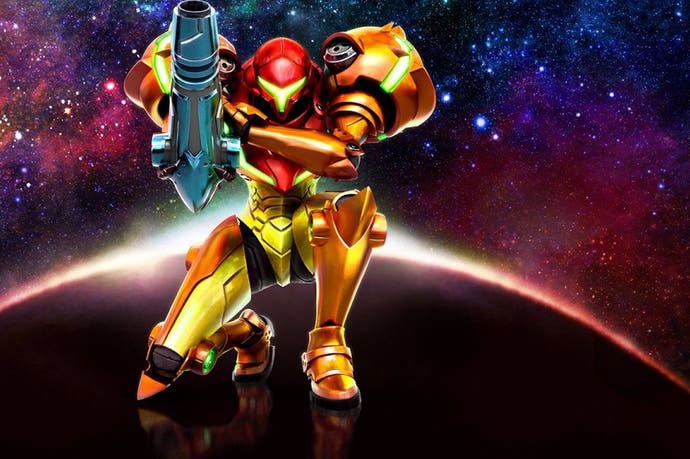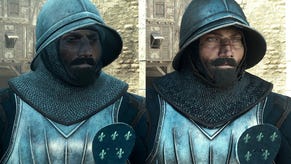The true return of Metroid is a glorious thing to behold
Samus it ever was.
Samus Aran is back. Good god it feels to great to be able to finally say that. Samus Aran is back! Metroid hasn't been away as such in recent years - let's not forget last year's Federation Force, an odd and slightly limp offshoot that didn't do much to allay fears that this was a series on life support - but this is a full-blooded return, a double header that could prove every bit as powerful as when Samus' late 90s hiatus was interrupted by 2002's exceptional Prime and Fusion.
Will Metroid Prime 4 be able to provide the same seismic jolt as Retro Studio's GameCube original? The familiarity a numbered sequel implies suggests it might not, but we've a while until we find out exactly what Nintendo's done for this most welcome of revivals. Before then there's this, a remake of 1991's Metroid 2 from MercurySteam that's coming to the 3DS this September. The lineage here is clear; this is a Metroid game in the more traditional sense, and after the diversions of the action-focussed Other M and the co-op based Federation Force, that's going to be very welcome indeed.
And if you're wondering how much Metroid: Samus Returns feels like classic Metroid, consider this; in two hours spent with the game's opening, I got lost. Horribly, joyously lost, in the manner of all good Metroid games, laying bombs at every wall in despair, retreading each step before retreading them again and wondering if I'll ever find a way out. So yes, Metroid is back alright.
It's still a very different brand of Metroid, though, thanks to the source material. The Game Boy's Metroid has always been a curious beast, a sequel that took the original's exploration in a direction that's never really been pursued again since. Rather than the arching intricacy and explicit gear-gating that's since become baked into the Metroidvania formula, you're tasked with finding a certain number of Metroids in each area before you're allowed to continue. It's at once more linear and more free-form as you're restricted to single areas while being given the freedom to pursue your objectives within them as you wish.
The problem with the Game Boy original lay with how its depiction of the planet SR388 was never very distinctive. That monochrome screen played its part, and finding your way through the lookalike caverns and halls of Metroid 2 was an often torturous affair. More than any other game in the series, this was crying out for a remake.
And it had one already, of course, with Milton Guasi's unofficial AM2R. There will be some - myself included - who prefer how that game appropriated Super Metroid's pixel art to what MercurySteam's gone for here, but the Samus Returns approach has its benefits. 3D is used smartly, be that in multi-layered artwork that frames the adventure or in the world itself which is neatly brought to life. The art direction is perhaps a little on the nose in parts - there's not quite the elegance or enigma there that marks out Metroid at its best - but it's a handsome game nevertheless.
There are other welcome improvements, too. New abilities such as a scan pulse highlight useful items in the environment (akin to playing the game on easy, of course, but it's a feature that can be ignored), while a full map system allows you to chart your adventure, laying multicoloured pins down to mark points of interest. Combat's been given a shot of adrenaline, too, with a free aim enabled by holding down a shoulder button and rooting you to the spot. It makes for a muscular remake that does a good job of pasting over some of the original Metroid 2's shortcomings.
I doubt it'll be enough to earn this a place among the very best Metroids. Coming to Samus Returns directly from a recent playthrough of Super Metroid shows that Nintendo would go on to perfect the formula in a way a faithful remake doesn't have the freedom to do. It does have the freedom to polish up a somewhat unloved and under-played part of the series' history, though, and reaffirm what it is that makes Samus so special - and why we should all embrace her true return.










